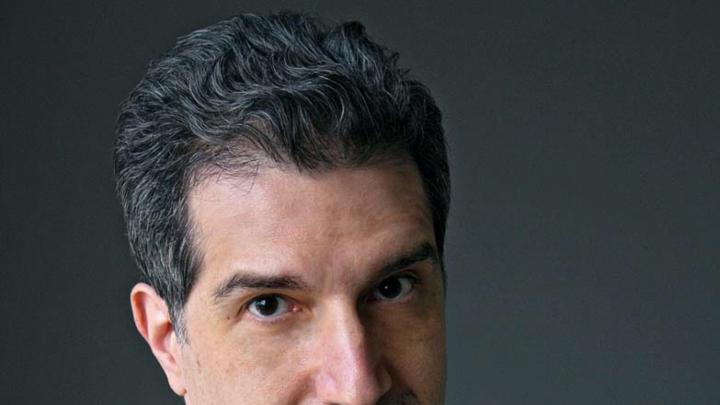Press Person
George Andreou ’87, who joined Alfred A. Knopf in 1990—rising to vice president and senior editor—has been appointed director of Harvard University Press, beginning in September. He succeeds William P. Sisler, who led the press from 1990 through his retirement at the end of the academic year last June. Andreou has published works by authors ranging from V.S. Naipaul, associate justice of the Supreme Court Stephen Breyer, LL.B. ’64, and poet John Ashbery ’49, Litt.D. ’01, to current faculty members David Armitage and Henry Louis Gates Jr. He has also served on the faculty of the Writers’ Institute at the Graduate Center at the City University of New York.
Antipathy Rising
In late June, President Drew Faust joined the leaders of several peer institutions at the University of Michigan, now commemorating its bicentennial, to discuss the status of research universities. Faust addressed, in part, universities’ obligations to the present (the costs of attendance and debt) and to the future (in terms of research). Less than three weeks later, on July 11, the higher-education press reported the dismaying finding—from the Pew Research Center’s annual opinion surveys—that a large majority of Republicans and Republican-leaning independents now feel that “colleges and universities have a negative effect on the way things are going in the country.” Amid campus disputes over free speech and identity politics, views of higher education have apparently become polarized, too: unfortunate for schools, and alarming for educators who believe in the power of teaching, learning, and discovery.
Graduate-Student Union
The National Labor Relations Board’s Boston office ruled in July that Harvard should hold a new election on graduate-student unionization. It found fault with the way the election was conducted last November. The University announced that it would appeal to the national NLRB. Details appear at harvardmag.com/newelection-17.
Toward Online Credentials
Continuing the evolution of massive open online courses (MOOCs) from free sources of learning and enrichment to something more substantial, the new UCLA Global Online program aims to offer for-credit courses, certificates, and graduate degrees; it hopes to serve 15,000 students in the next five years.…The Business School’s HBX has unveiled “Becoming a Better Manager,” its fourth online certificate program.…MIT has announced strong student enthusiasm for an experimental, online, for-credit version of a course about circuits and electronics taken last fall by regularly enrolled students on its Cambridge campus.…And separately, Coursera, the for-profit competitor to EdX, has announced a $64-million, fourth round of financing (it has now raised $210 million). It intends to develop its offerings for businesses and to expand its portfolio of master’s degrees—aiming for 15 to 20 programs by the end of 2019. Former Yale president Rick Levin, Coursera’s CEO since 2014, relinquished that position to Jeff Maggioncalda, previously of Financial Engines; Levin will remain as senior advisor.
Capital Ideas
MIT, in the midst of a $5-billion capital campaign, announced the most valuable of gifts: $140 million, from an anonymous donor, to be used without any restrictions.…Johns Hopkins, backed by a $150-million commitment from the Stavros Niarchos Foundation, is launching an initiative to foster civic engagement and inclusive discourse worldwide.…Brandeis has received a $50-million bequest, the largest gift in its history, to support financial aid.
Highest Honor
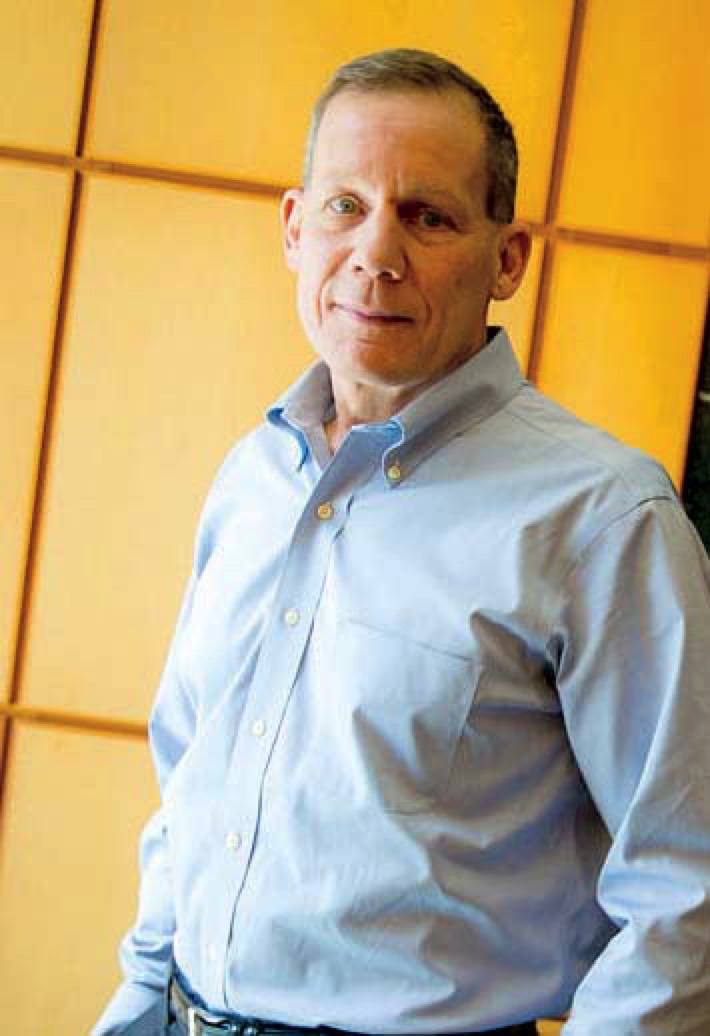
Charles M. Lieber
Photograph by Rose Lincoln/Harvard Public Affairs and Communications
Chemist Charles M. Lieber, a pioneer in the creation of bio-compatible electronics, has been named the inaugural Friedman University Professor, a new position endowed by Joshua Friedman ’76, M.B.A. ’80, J.D. ’82, and Beth Friedman. University Professors hold the highest faculty rank, reflecting their eminent scholarship; they may teach and conduct research in any Harvard school. Previously Hyman professor of chemistry, Lieber chairs the department of chemistry and chemical biology. For more on his work, see harvardmag.com/lieber-17.
ART Institute’s Pause
The American Repertory Theater’s Institute, established in 1987 to offer a two-year graduate professional program (but culminating in an Extension School M.L.A. degree, not a Harvard M.F.A.), announced in July that it would take a three-year pause in admissions to examine strategic issues: the degree program, financial resources, and facilities (the latter in the context of a renovation of the Loeb Drama Center). It suspended admissions for the coming year last winter, after the U.S. Department of Education determined that it had failed to meet federal standards for student debt load upon graduation. Meanwhile, the University has begun implementing the arts program outlined in 2008, notably initiating the undergraduate theater, dance, and media concentration (see harvardmag.com/arts-effort-16).
The Square Scene
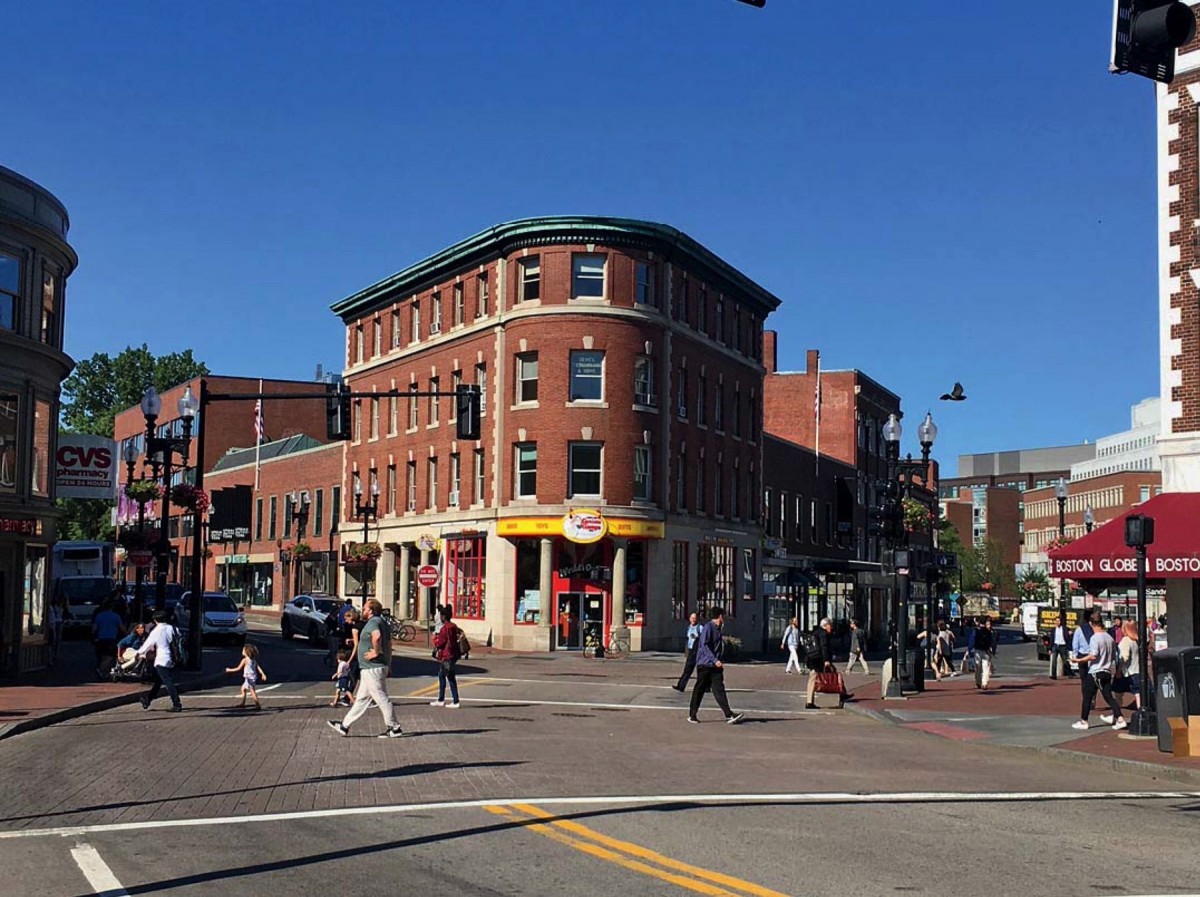
Photogarph by Harvard Magazine/JC
Cambridge authorities continue to review a proposal to rebuild much of the block that comes to a triangular point opposite the MBTA Red Line station, at Brattle and JFK Streets; new owners have proposed developing a high-end retail mall. Separately, across the way, where Crimson Corner operated for decades, the &pizza restaurant chain is attempting anew to secure permission to open a store; its prior application was rejected, and the storefronts are now vacant. Around the corner on Church Street, the new owner of the former Harvard Square Theater, Gerald Chan—whose family gave the public-health school a $350-million endowment gift in 2014—has proposed a five-store office and retail structure, including a below-grade cinema. Café Algiers, a Brattle Street fixture for nearly a half-century, is closing; a new restaurant will occupy the space. And further major changes loom: The Boston Globe reported in July that the owners of 1-8 and 17-41A Brattle are putting both up for sale; the latter parcel is zoned for up to eight stories, making the likelihood of significant redevelopment high. (Read more about the changing Square at harvardmag.com/hvdsqredev-17.)
Nota Bene
Princeton-bound. Sociologist Matthew Desmond, former Loeb associate professor of the social sciences and a winner of the Pulitzer Prize for his book Evicted (the research was the subject of the magazine’s cover story, “Disrupted Lives,” January-February 2014, page 38), has been appointed professor of sociology at Princeton. His departure follows that of prominent economist and poverty researcher Raj Chetty, who decamped for Stanford in 2015 (see “Economists’ Exit,” November-December 2015, page 26).
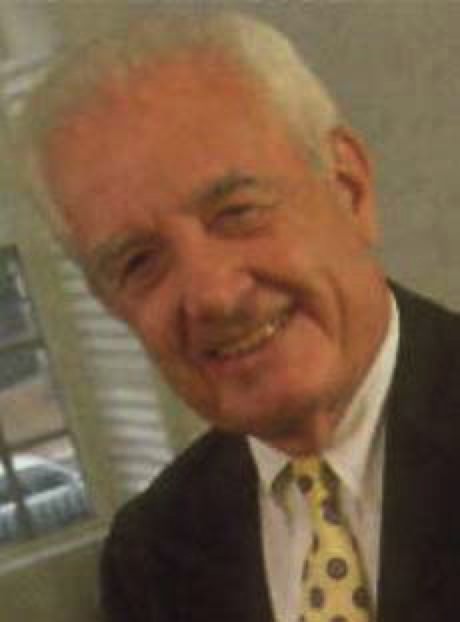
Fred Glimp
Photograph by Jim Harrison
Gentle giant. At his formal retirement from Harvard in 1996, Fred Glimp said he would be “forgotten but not gone.” He was, of course, neither, remaining engaged with helping the University he loved connect to supportive alumni—many thousands of whom knew him from his decades of service in admissions and alumni affairs and development. Glimp died on June 5; an appreciation appears at harvardmag.com/glimp-17, along with a link to an exit interview from 1997.
Mass. hall to boardroom. Following the precedent set for Harvard presidents by Drew Faust, who joined the board of Staples Inc., another high-level administrator, University provost Alan M. Garber, has been elected a director of Vertex Pharmaceuticals Inc., a leader in cystic-fibrosis therapies. According to Vertex’s SEC filings, in addition to annual retainers, directors receive initial option and restricted equity grants totaling $550,00, and equivalent annual sums thereafter.
Two chairs. On June 30, Harvard Law School announced two new endowed chairs: the Antonin Scalia [LL.B. ’60] professorship of law, honoring the late Supreme Court justice; and the Samuel LL.M. ’55, S.J.D. ’59, and Judith Pisar professorship of law, and a similarly named fellowship fund, for human rights, which will support the school’s International Human Rights Clinic.
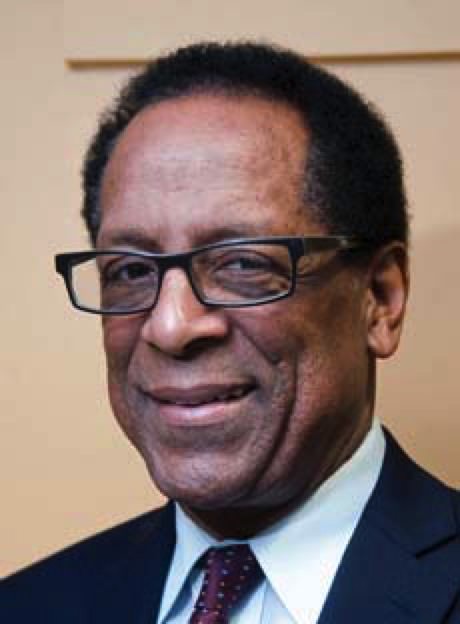
S. Allen Counter
Photograph by Jon Chase/HPAC
Foundation’s father. S. Allen Counter, the inaugural and longtime director of the Harvard Foundation for Intercultural and Race Relations, died on July 12 after a brief illness; read about his work at http://harvardmag.com/counter-17.
Maker space. As construction proceeds on the Allston science and engineering center (see page 14), Harvard announced that the Cihang Foundation, affiliated with China’s HNA Group, has made an undisclosed gift to equip a 5,000-square-foot “maker space” within the facility.
Climate commitment. In the wake of President Donald Trump’s decision to withdraw the United States from the Paris Agreement on climate change, President Drew Faust joined with the leaders of 11 other research universities to affirm their institutions’ commitment to fulfilling the pact.
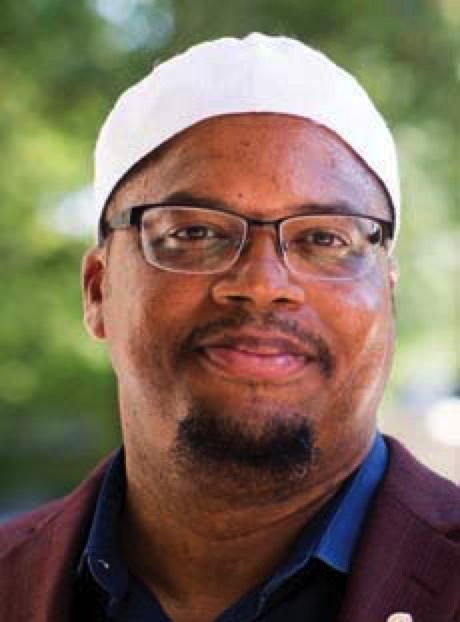
Khalil Abdur-Rashid
Photograph by Stephanie Mitchell/HPAC
Miscellany. The Center for African Studies has opened a research center in Johannesburg; some 100 faculty members are now conducting research or teaching on Africa.…Khalil Abdur-Rashid has been appointed the University’s first full-time Muslim chaplain; he came to Harvard from Southern Methodist University, where he was an adjunct professor of Islamic studies.…Adam Falk, Ph.D. ’91, president of Williams College, will relinquish that post at year end to become president of the Alfred P. Sloan Foundation; it makes grants of $80 million annually for research in economics, technology, and science.…Wilson professor of business administration John Quelch, who previously served as dean of business schools in China and London, has headed for warmer climes: he is now dean of the University of Miami’s B-school.…UPS Foundation professor of service management Frances X. Frei has taken a leave from the Business School to become senior vice president of leadership and strategy at Uber, the ride-sharing company.…Newly elected members of the American Philosophical Society include Nathan Distinguished Professor of pediatrics Stuart H. Orkin; Porter professor of medieval Latin Jan Ziolkowski (who is director of Dumbarton Oaks); Leverett professor of mathematics emeritus Benedict Gross (a former Harvard College dean); and Margaret H. Marshall, Ed.M. ’69 (former Harvard vice president and general counsel, former chief justice of the Massachusetts Supreme Judicial Court; and president of Harvard Magazine Inc.).
